Welcome to one of the most active flamenco sites on the Internet. Guests can read most posts but if you want to participate click here to register.
This site is dedicated to the memory of Paco de Lucía, Ron Mitchell, Guy Williams, Linda Elvira, Philip John Lee, Craig Eros, Ben Woods, David Serva and Tom Blackshear who went ahead of us.
We receive 12,200 visitors a month from 200 countries and 1.7 million page impressions a year. To advertise on this site please contact us.
|

|
|
Flamenco Playing and Practice Time
|
You are logged in as Guest
|
|
Users viewing this topic: none
|
|
Login  | |
|

   
FlamencoD
Posts: 113
Joined: Apr. 7 2012
From: Portland, OR

|
 Flamenco Playing and Practice Time Flamenco Playing and Practice Time
|
|
|
Does anyone keep track of their hours they spend practicing or performing flamenco? Anyone ever heard of the 10,000 hour rule? If so, where are you at? If not - how many hours do you estimate that you've played flamenco?
I know time isn't the end all be all, and it's the use of your practice time that matters most, but I still prefer to keep track of all the hours I play. My time spent playing flamenco is usually pretty productive.
So far I've spent about 900 hours strictly on Flamenco (over the last 23 months), and about 3000 hours total on guitar in my lifetime. I used to play flamenco for over 1.5 hours per day, but since June I've averaged just over 70 mins per day, after the birth of my first daughter. Well worth the trade-off! It takes dedication what with a full time job, wife, and baby, not to mention still trying to find time to workout!
|
|
|
|
REPORT THIS POST AS INAPPROPRIATE |
Date Dec. 21 2012 19:38:05
 |
|

   
Ramon Amira
Posts: 1025
Joined: Oct. 14 2009
From: New York City

|
 RE: Flamenco Playing and Practice Time (in reply to FlamencoD) RE: Flamenco Playing and Practice Time (in reply to FlamencoD)
|
|
|
quote:
I wish I knew how many hours the masters practised when they were young...
Most of the great virtuosos started as young children and practiced very long hours. I once asked my teacher, Mario Escudero, how long he practiced when he was learning. His answer was, “From the time the sun came up until it went down.”
I have my own theory about practice – not for early learners or intermediate, but once you’ve reached a reasonably high level of proficiency. Which is – don’t. At least not practice as such. I never do scales, or any kind of technical exercises whatsoever. I only practice actual music.
Think about it. Any well rounded repertoire is going to include everything that you would practice – picado, arpeggios, tremolo, rasgueado, etc. So what would be the point of practicing these separately as a technical exercise when you will get all the practice in the world for these playing actual music, and you get the benefit of sharpening up that music to a high degree as well.
Ramon
_____________________________
Classical and flamenco guitars from Spain Ramon Amira Guitars
|
|
|
|
REPORT THIS POST AS INAPPROPRIATE |
Date Dec. 22 2012 14:41:04
 |
|

   
Bulerias2005
Posts: 632
Joined: Jul. 10 2010
From: Minneapolis, MN

|
 RE: Flamenco Playing and Practice Time (in reply to FlamencoD) RE: Flamenco Playing and Practice Time (in reply to FlamencoD)
|
|
|
The 10,000 hour rule sounds about right. I've been playing for about 14 years almost every day (usually 2-3 hours on the days I play), so I think I am either about to approach 10K or have just recently surpassed it (not just flamenco, but classical/flamenco/Brazilian/jazz guitar). However, I also agree with Ricardo as far as quality time vs. 'regular' time. There's a pretty big difference, and simply looking at the numbers provides an incomplete picture of one's level of playing, IMO.
_____________________________
Daniel Volovets
Jazz, Classical, Flamenco, & Latin-American Guitar
http://www.danielvolovets.com/
|
|
|
|
REPORT THIS POST AS INAPPROPRIATE |
Date Dec. 23 2012 0:56:36
 |
|

   
Erik van Goch
Posts: 1787
Joined: Jul. 17 2012
From: Netherlands

|
 RE: Flamenco Playing and Practice Time (in reply to Ramon Amira) RE: Flamenco Playing and Practice Time (in reply to Ramon Amira)
|
|
|
quote:
ORIGINAL: Prominent Critic
quote:
I wish I knew how many hours the masters practised when they were young...
I have my own theory about practice – not for early learners or intermediate, but once you’ve reached a reasonably high level of proficiency. Which is – don’t. At least not practice as such. I never do scales, or any kind of technical exercises whatsoever. I only practice actual music.
Think about it. Any well rounded repertoire is going to include everything that you would practice – picado, arpeggios, tremolo, rasgueado, etc. So what would be the point of practicing these separately as a technical exercise when you will get all the practice in the world for these playing actual music, and you get the benefit of sharpening up that music to a high degree as well.
Ramon
I expressed my feelings about the subject various times before (in long posts about the art of studying) and i partly agree and partly disagree with your "the music offers all the exercise you need" approach. I never took technical exercises very seriously myself, not even when i entered the brand new Paco Peña University school of flamenco guitar in 1985 to study the subject on a professional and full time base. My father was 1 of the teachers and confronted with the extremely bad hand coordination of his new "reasonably high level of proficiency" students he immediately decided to include extra lessons focussing on technique only (on top of the usual 1 hour a week lesson 1th year classical guitar students received were technique was indeed integrated in there performing repertoire).
So, dude to my fathers technique lesson we were forced to do a variety of exercises (at least during the lesson)...... i even did the exercises in my spare time (a bit) but didn't benefit from it "at all"....not because they were useless (they were great), but i simply was not ready to learn from them yet. I did them because i was told to do so but lacked the mind, the focus and the attitude to benefit from them.
On top i was addicted to chess at the time and on every hour spent behind the guitar i spent at least 10 hours behind the chess board (if not more). After 4 years of University school "training" i consequently became in danger of being kicked of dude to lack of progress (we had to do exam every year to pas). So i began to take my guitar study a little more "seriously", confusing making long hours (repertoire as well as exercises) with actual studying...it obviously didn't help me a thing.
But 1 day something strange happened...for the first time ever i began to love the art of studying and spending time behind the guitar became spending QUALITY time behind the guitar. I spent huge amounts of energy in studying the art of studying and soon discovered that playing (parts of) pieces is WAY to much information to handle when you surge for ABSOLUTE CONTROL. So i started to do the exercises i learned 4 years before, only to find out those "stupid" and "simple" 1,2,3,4 fingering scales were way to much info to deal with as well if you demand absolute control. So i went back even more, studying single fingers, parts of fingers, bio-mechanica, brain-muskle coordination, total relaxation vs controlled energy input, tonal development vs. meticulously studied input/output experiments, mental visualisation....you got my drift. Playing an open string, focussing on tonal development, energy control and exploring every single cel in your guitar and your body can be a 1.000.000 times more difficult, intense and meaningful than playing a piece of the masters......if you do it with focus.
To make a long story short, after studying the guitar like this (with complete focus and the right state of mind) doing exercises that are more simple than you can ever imagine i reached "total" musical and technical control in both my exercises and my repertoire in apr. 40 hours. 40% of that time was spent to exercises, 40% to mental visualisations and only 20 % or less to studying the repertoire itself. After i gained total control i soon got bored with playing the same pieces over and over again (with nothing left to improve) and went back to the chessboard....
Obviously i lost everything i gained as quickly as i learned it....to benefit from it for live you have to add numerous hours of mindless drilling as well which simply is not my thing. The last 4 years of my university training i spent most of the time behind the chessboard once again, restricting guitar study to 40 hours of power-study in the mount preceding the yearly exam...in those 40 hours i went to hell and back to (re)find total musical/technical/mental control and after a power-training like that i could basically outplay students studying falsetas 24/7 (most of them played falsetas over and over again but were also making the same mistakes over and over again, which is a very contra-productive way to "study" because you basically program yourself to make mistakes that way....my approach was the complete opposite, i focused on the mistake only, trying to find out what went wrong and caused the problem...once i found the solution i started to practice/program that solution....slowly, focusing and not integrating it in the falseta right away but merely making a separate exercise of it one way or the other).
If i learned 1 thing in those days it is that good study focus on a very small subject, giving full attention to only a very limited amount of data (preferably 1): things don't improve by mindless repeating hoping the problem solves itself, you have to sit down and study/alter/improve everything that is not 100% to your likings, demanding absolute perfection....the SMALLER the object of your focus, the BIGGER the result....not everybody can do it (most can't), and i often failed myself.... quite often it took me weeks or even mounts to find the right state of mind/focus needed to challenge myself and the guitar to that level. ...but once i did find that state of mind 40 hours was all it took to upload myself to maximal levels.
I guess that AFTER i passed my 40 hour workout successfully (reaching maximum musical and technical control) a couple of warming up exercises on a daily base (on top of playing my repertoire) would indeed have been sufficient to maintain that level of professionalism, but every time i reached that level of perfection i got bored instantly because there was nothing more to improve....if yo can throw a perfect set with darts it's nice the first times, but if it becomes so easy you can do it blindfolded it is very hard to practice it 2 hours a day just to be sure you can also do it in a championship..... the last time i had the will/focus to get the best out of myself was 20 years ago and i don't have any illusions about my present day level...right now i restrict to playing falsetas when i feel inspired (which is not very often) and suffer the consequence by often feeling like an almost empty battery...and you don't structurally fix an empty battery by using it more often, you fix it by recharging it the correct way... until i get that 40 hour power boost i will completely depend on the mood of the day which varies between 1-100%.
|
|
|
|
REPORT THIS POST AS INAPPROPRIATE |
Date Dec. 23 2012 6:40:07
 |
|

  
Ruphus
Posts: 3782
Joined: Nov. 18 2010

|
 RE: Flamenco Playing and Practice Time (in reply to Doitsujin) RE: Flamenco Playing and Practice Time (in reply to Doitsujin)
|
|
|
quote:
ORIGINAL: Doitsujin
i dont practice :) did that enough when i were younger.... it just stays... i picky my guitar every now and than... and fiddle a little... you dont really need to think about practice if you dont wanna get as good as grisha or so. its enough to have some fuuuun without any practice ~~~
Sounds quite the way my cousin does, with which he is getting along pretty well. ( And leaving him time to invest into other instruments too, like into all kind of flutes, trumpet and violine.)
However, a case like yours or his appears only doable for who has came along in a natural way without introducing individual hiccups, which unfortunately seems to occure only with a small percentage of playing careers.
-
I find the context of Erik´s post outstandingly valuable.
He just nailed perfectly how things deduced for me over such a long odyssey, without me condensing them as well in a message.
If you can make yourself restraining to reduce the tangle down to the actual failure of execution, and pratice that on the point, your practising will be the most efficient, allowing the highest time investment / achievement ratio.
That restraint and focus is extremely hard to achieve and maintain, I know. ( I come to there with only ~ 15-30% of my praticing time, despite the awareness of what´s needed.)
This way might be different from an instant fun route, but only initially; allowing you the most of pleasure in the end. - If you are like me. Me differs from Erik in that I do always injoy perfection / wouldn´t get bored if there was nothing left to master.
Erik´s description explains so well why I sympathize with Ricardo´s perspective of learning through making music ( isn´t that after all how e.g. the common gitano learns his performing skills), yet aware of how that can go wrong when didactics are not perfect in the first place; and why the itemized technical premisse appears so useful to me, as long as it only be conducted the way described in Erik´s post.
For me anyway, who has to overcome FD, because of exactly a former motto of `playing for fun´unergonomically.
There exists a kind of elixir of technical ease and it is such a pity to miss out on it and drag chains around that develop only heavier the farther you go. Athletics are not the way of artistics.
Ruphus
|
|
|
|
REPORT THIS POST AS INAPPROPRIATE |
Date Dec. 23 2012 17:08:47
 |
|

   
at_leo_87
Posts: 3055
Joined: Aug. 30 2008
From: Boston, MA, U.S.A

|
 RE: Flamenco Playing and Practice Time (in reply to FlamencoD) RE: Flamenco Playing and Practice Time (in reply to FlamencoD)
|
|
|
i recently decided to stop practicing technique exercises all together. they take up a lot of time and they only help with your repertoire indirectly.
what i'm going to do is practice my repertoire to work on my technique. if i want to work on arpeggios, then i'll practice some arpeggio heavy falsetas. i'll play it slowly and deliberately, making sure each note comes out clearly, easily, perfectly in time, exactly the way i want it to. i think this will be just as effective.
this way, i'll get the most bang for my buck. i'll work on technique, keep my repertoire fresh in my memory, and get more playing time with my repertoire, which means i'll ingrain into my muscle memory even more.
playing technique exercises made me only good at those exercises. why not directly work at the falsetas that i want to sound better?
we'll see how this will work out but i have a feeling my playing won't be suffering from leaving out any technique work.
also, having a plan or goals helps. there's a difference between practicing for 45 minutes and playing around for 5 hours.
_____________________________
|
|
|
|
REPORT THIS POST AS INAPPROPRIATE |
Date Dec. 24 2012 15:43:54
 |
|

  
jtucker
Posts: 6
Joined: Jul. 15 2012
From: San Diego, California

|
 RE: Flamenco Playing and Practice Time (in reply to FlamencoD) RE: Flamenco Playing and Practice Time (in reply to FlamencoD)
|
|
|
Very interesting ideas, and it's great to see the spectrum of time/energy devotion on this forum!
For me, I fall into the category of "I don't really practice..." When I first started playing classical in high school, I would put in a good 4hrs of practice each night after I finished all of my homework. As I got to the university studying music for my degree, I suddenly found there were many things that were more fun than sitting in a practice room by myself for hours on end.
To my ears, my big senior recital was horrible, since I didn't put enough repetitions in and afterwards I had this crushing sensation that I would never be as good as I should/could be because I wouldn't sit down and focus on practicing well enough or long enough. The guilt of "wasting" my potential and the embarrassment I felt at not being good enough to perform basically kept me from playing and enjoying music, even though I was a music teacher in a public school. I only picked up my guitar when I taught in class, and Hot Crossed Buns or Ode to Joy was about the extent of things.
Finally, I decided to forget about classical this or being able to play this piece or that well enough, and to only play flamenco, since that's what I was passionate about. With newfound gusto, I devoured the Juan Martin and Dennis Koster books, and the things I picked up in Spain during my semester abroad were coming back to me. I got connected with a local dance studio and began playing for classes.
A few years later, I'm now playing for dance classes about 8 hrs. per week (I have the opportunity for another 3-4 hrs. but that would take me away from the family 4 week nights and on Saturdays... arg.), with assorted dance-related things popping up in between. The only "practice" I really do is when I want to learn a new falseta and add something into my repertoire. I'll get it loaded up into my brain, and then work out the kinks during dance classes. I spend about 15-30 minutes per night noodling around while my wife puts our daughter to bed, so I guess that's another 3-4 hrs. per week, but not real quality time.
The funny thing, is that will all this "non-practice" time, I've noticed my skills getting better and better. Falsetas that I had always written off as too difficult have fallen easily into my hands when I finally sat down to learn them. So it seems like all the time plunking around for dance classes has really paid off, just like the old Sabicas adage of 10 years playing for dancers + 10 years playing for singers = ready to start being a soloist.
I was talking to the main man around town for all things accompaniment, and I lamented that I would love to take lessons but I would be wasting my time and my teacher's time because I didn't have any time to practice. He flatly answered me, "Well, I only play on weekends. I'm way too busy with my day job. Maybe I'll change my strings during the week, but other than doing some warmups Friday mornings, I play Friday, Saturday, Sunday and that's it..." Totally blew my mind! What really helped him, he said, was putting in 6-8 hr. days in the dance studios in Madrid for several years in his younger days.
So I guess we should all practice as much and as well as our own individual lives afford us, but not to the point where it gets to be no fun and just a job. Otherwise, what's the point? :-) Sorry for the ramble...
Jason
|
|
|
|
REPORT THIS POST AS INAPPROPRIATE |
Date Dec. 24 2012 19:19:29
 |
|

   
at_leo_87
Posts: 3055
Joined: Aug. 30 2008
From: Boston, MA, U.S.A

|
 RE: Flamenco Playing and Practice Time (in reply to Erik van Goch) RE: Flamenco Playing and Practice Time (in reply to Erik van Goch)
|
|
|
quote:
but before i went in the deep "studying falsetas only" made me play those falseta's better but did not dramatically improve my level of playing...those 1:1 exercises did!
thanks for sharing perspective, erik.
i did indeed do a lot of very basic exercises focusing on very small details. but the frustration came to me recently when i recorded myself playing some old stuff and it just didn't come out the way it did like when i played it a lot. i haven't felt that dramatic improvement that you have. i just seem to get good at those exercises. for instance, the typical descending three note per open string picado exercise vs. a real descending three note per string run in a falseta. the exercise doesn't really help me learn the new thing. might as well play the real thing at 60bpm and ramp it up from the start, getting hundreds of quality repetitions in.
here's my approach. when i practice falsetas, i either sacrifice speed (even going very libre, without metronome if i have to) or sacrifice playing the whole falesta and focusing on literally a couple notes or so. when working with speed, i'll progressively ramp up the speed. when working on only a couple of notes, i'll progressively add more notes.
either way, i never allow myself to sacrifice ease of playing or clarity and i'm getting plenty of repetitions in while working on a wide range of actual bits that i will be playing. so in fact, there's enough of it to get good at it "as a whole."
think about all the different arpeggio combination exercises out there. you would have to spend hours playing all the different combinations. then when you learn an actual falseta, you'll probably still trip up and start right from scratch because there's a pattern that you have missed over.
to get a good at something as whole, i think it's better to have a nice varied repertoire. which is also why i don't think it's good to simplify falsetas that you want to learn but are a little out of your reach. there's your chance to grow! just slow it down and give it A LOT of time.
again, i'm just trying this out but it feels "right" so far. maybe there's no linear path to progression in the end, and we have to go back and forth between different practice methods. but what i've done so far has led me to try this new approach.
one last point, to me, this is a much more exciting, fun, and inspiring way to practice. this is important to both beginning and advanced players.
_____________________________
|
|
|
|
REPORT THIS POST AS INAPPROPRIATE |
Date Dec. 25 2012 16:34:11
 |
|

   
britguy
Posts: 712
Joined: Dec. 26 2010
From: Ontario, Canada

|
 RE: Flamenco Playing and Practice Time (in reply to at_leo_87) RE: Flamenco Playing and Practice Time (in reply to at_leo_87)
|
|
|
quote:
here's my approach. when i practice falsetas, i either sacrifice speed (even going very libre, without metronome if i have to) or sacrifice playing the whole falesta and focusing on literally a couple notes or so. when working with speed, i'll progressively ramp up the speed. when working on only a couple of notes, i'll progressively add more notes.
This makes a lot of sense to me. I've never really 'practiced ' in the accepted sense of the word. Maybe that's why I'm technically rather incompetent.
But I had early childhood bad experiences being a slave to piano excersizes, eventually giving up completely and teaching myself to be a somewhat crude , but enjoyable, pub piano basher.
I'm sure if I forced myself to 'practice' guitar scales, excersizes, etc. I'd get bored and tired pretty quick. As it is, I always enjoy playing my guitar, every day, at least 2-3 hours, sometimes much more. And like the poster, I learn best by slow repetition of actual phrases that I want to learn. But I also enjoy the repetitions, especially after a few times when I notice its getting better.
I guess if you're really serious about being a virtuoso performer, heavy-duty technical excersizes may be necessary. But, for many of us, I wonder if it's really that beneficial. . .
_____________________________
Fruit farmer, Ontario, Canada
|
|
|
|
REPORT THIS POST AS INAPPROPRIATE |
Date Dec. 25 2012 21:23:50
 |
|

   
Erik van Goch
Posts: 1787
Joined: Jul. 17 2012
From: Netherlands

|
 RE: Flamenco Playing and Practice Time (in reply to at_leo_87) RE: Flamenco Playing and Practice Time (in reply to at_leo_87)
|
|
|
quote:
ORIGINAL: at_leo_87
here's my approach. when i practice falsetas, i either sacrifice speed (even going very libre, without metronome if i have to) or sacrifice playing the whole falesta and focusing on literally a couple notes or so. when working with speed, i'll progressively ramp up the speed. when working on only a couple of notes, i'll progressively add more notes.
either way, i never allow myself to sacrifice ease of playing or clarity and i'm getting plenty of repetitions in while working on a wide range of actual bits that i will be playing. so in fact, there's enough of it to get good at it "as a whole."
think about all the different arpeggio combination exercises out there. you would have to spend hours playing all the different combinations. then when you learn an actual falseta, you'll probably still trip up and start right from scratch because there's a pattern that you have missed over.
to get a good at something as whole, i think it's better to have a nice varied repertoire. which is also why i don't think it's good to simplify falsetas that you want to learn but are a little out of your reach. there's your chance to grow! just slow it down and give it A LOT of time.
again, i'm just trying this out but it feels "right" so far. maybe there's no linear path to progression in the end, and we have to go back and forth between different practice methods. but what i've done so far has led me to try this new approach.
one last point, to me, this is a much more exciting, fun, and inspiring way to practice. this is important to both beginning and advanced players.
I think that's an excellent approach which basically is how i study falsetas as well. The exercises i mentioned were made for my hands and my brain in a specific time of my life and are not suitable for everybody (including myself when i lack the necessary state of mind)....i second your statement there's no linear path to progression in the end, and we have to go back and forth between different practice methods.
As far as additional exercises are concerned i benefited the most from "single finger" exercises focusing on bio-mechanica, relaxation, energy transposal, tonal development, input/output, things like that. Obviously i also studied the same aspects in more complex combinations (which involves planning and sophisticated finger/hand/arm/eye coordination) but the main idea was to get profound knowledge of how i could make my body and my instrument function the best possible way...a little bid like learning the alphabet, single letters pronouncements, the most common letter combinations and grammar.
The funny thing is i adapted this "lets start all over again approach" after i played the guitar for 18 years and after i had received professional lessons on University level for 4 years. Music was the first language i've ever learned and at a very young age i could sing the complete repertoire of classical guitar (including the Bach suites). As a child/youngster i played numerous hours on various instruments without bothering technique at all...i only focused on melody and harmony and had a lot of fun doing so.....
When i entered Paco Peña's University School of Flamenco Guitar i had indeed excellent ears for melody/harmony...but i had no idea of compas/structure and even worse i had to learn to play the guitar all over again. The previous years i had studied zoology/histologie (animal biology at microscopical level) and i wasted a full year because i rather played the guitar/violin than spent time with my study books. But as soon as i entered University School of Music (chancing music into a profession rather than a hobby) i instantly became addicted to chess and (once again) wasted years because i rather spend time studying chess books than playing the guitar.
In order to survive the yearly exams (without spending to much time behind the guitar) i decided to study the art of studying, involving rigid self studies/experiments in bio-dynamics, neuro linguistisch programming, mental visualisations, tonal developments etc.etc. I digged really deep and in a way put my fingers/brain and guitar under a microscope..i even kept scientific scores about amount/period/quality/kind of sleeping/eating/studying en there effect on energy/concentration level/results.
Within 40 hours of over-concentrated study (mainly tonal and bio-meganical studies and lots of mental visualisations) my view on music and playing the guitar changed completely and so did my technique and level of playing.....applying that new knowledge in my repertoire was simply a matter of doing what you did, but using a completely reset brain/musical approach/source of energy and set of hands made altering things to my likings very easy and upgrading a piece to my new standards took me only 2 or 3 hours (half of which was spend to mental visualisation)...i could play a whole piece in my head as realistic as playing it for real, the notes, the vibrations, the fingering everything.
However, as soon as i passed the aimed yearly exam (were i always failed to reproduce my spectacular results because it wasn't part of my long term memory yet and still needed constant mental support and complete relaxation which is hard to achieve in an exam) i unfortunately failed to continue playing like that but always was tempted to skip a day to enjoy the summer holiday...and 1 day became 2...and 3 and as quickly as i gained professional levels i lost them as well....Getting it in my system permanently would require several mounts/years of daily programming and i never had the talent to do that...1 or 2 hours a day would have been sufficient but i couldn't even motivate myself to do that....so after 4 years of repeating this pattern (playing chess most of the time, delaying serious guitar study to the last weeks before the exames) i decided to call it a day and right now i just play like i used to play before i applied this system...it's all or nothing and i decided to make it a hobby once again.
To me my exercises were never boring (so much to learn/explore/improve) and i made up new ones every day fitting my moods and needs...quite often they were constructed to tackle the problems i met in my repertoire. As far as arpeggio exercises are concerned i never studied numerous variations...pima, pami and pimami basically covered it all.
One of my best inventions was my tremolo exercise which always was the first combi-exercise of the day...by playing al notes with 3 fingers at the same time during the first rounds (ima) my hand was forced to adapt a position that turned out to be invaluable in tackling difficult string combinations in my PDL tremolos.
------0--0-----------------------------------------------------------0--0---------
-------------0--0---------0--0---------------------0-0------0-0----------------
-----------------------------------0--0-------0-0--------/0----------------------
-------------------------------------------/0---------------------------------------
-----------------------/0-----------------------------------------------------------
--/0--------------------------------------------------------------------------------
-------0-0--------------------------------------------------------------0--0-------
--/0--------0--0-------0--0----------------------0---0------0---0---------------
--------------------/0----------0--0-------0--0-----------------------------------
----------------------------------------/0-------------------------------------------
------------------------------------------------------------/0-----------------------
--------------------------------------------------------------------------------------
The challenge was to play the (sliding) thump soft, than relax it totally before executing the fingers (focussing on getting exactly the same energy input/output all the time...or to favor 1 finger to be a little more audible to challenge focus and control).
To me 10 minutes of practicing this in full focus (starting with playing the 3 fingers simultaneously before doing it the normal way as well) beats an hour of playing real life tremolo's as far as the right hand is concerned.....just use open strings or a 4 finger dim chord changing position after each round.
One very effective and totally underestimated aspect of studying is mental visualisation....the main difference between a natural talent and a non natural is that the natural tend to play the guitar like he would sing it.....the non natural player (me and most others) thinks he is doing that as well but in reality his fingers tell a complete different story. One of the most effective ways to improve your play is to play or sing a phrase a couple of times in your mind before playing it on the guitar. Singing it a couple of times in your head (relating all the notes to the melodic highlights) can beat 1 hour of mindless replaying! And if you notice a difference between your inner voice and the notes leaving your guitar all you have to do is change the input until it match what you feel inside.... but always consult that inner voice.
|
|
|
|
REPORT THIS POST AS INAPPROPRIATE |
Date Dec. 25 2012 22:09:26
 |
|

  
Ruphus
Posts: 3782
Joined: Nov. 18 2010

|
 RE: Flamenco Playing and Practice Time (in reply to Erik van Goch) RE: Flamenco Playing and Practice Time (in reply to Erik van Goch)
|
|
|
quote:
ORIGINAL: Erik van Goch
applying that new knowledge in my repertoire was simply a matter of doing what you did, but using a completely reset brain/musical approach/source of energy and set of hands made altering things to my likings very easy and upgrading a piece to my new standards took me only 2 or 3 hours (half of which was spend to mental visualisation)...
That complete reset is the elixir of utmost in technical progress.
Getting to there / starting exercises from there compares to an approach of `hauling away with the luggage´ like dynamic body exercises for muscle gaining to isometric ones.
The latter ones, correctly executed, yield way more muscle tissue at much faster pace and with way shorter execution time ( like dynamic example ~ 10 min, isometric example 50 seconds). Further if laid out for prolonged muscles, providing a way more versatile and stable contraction / power than common results from dynamic routines.
However, dynamic exercising is so much easier to get into. On average performance you can even if go completely astray with your thoughts, watching TV besides or listening to your mp3-player.
Whereas the focussing that it takes for to correctly execute isometrically for muscle prolongation asks that much from the trainee that I have basically ceased instructing this method. Most won´t be doing it anyway.
Unfortunately; for, the ones who did benefitted greatly.
It seems overextending for us to start from a zen-like approach of not doing / desisting. From a plain level.
Your average Joe like me wants to just gallop away with what he has. As if a couple of contemplatitive seconds could compare to years and decades of overcoming / struggling with yourself. ... Of physical and neural anatgonists blocking protagonists and their forcings to unergonomical detours.
Which is the vast majority´s way, with the lucky exeption of the natural players, as Erik mentioned already, who however present an only small percentage of the musician´s community.
For Christmas I have been presented with fascinating films about some of my musical heros like David Gilmour and Jimmy Page, and as close looks reveal once again, even those are no natural players ( though Gilmour has been pretty close ).
The least are, even among the top artists.
A most suiting way depends on what you want.
Never mind if you have in mind a playing along for relaxation and instant pleasure with the instrument ( my way for the first ~ 30 years ). Being satisfied with the sonic exitement and lesser occupied with goals and technical progress.
But if you are aiming for basically new shores, ahead from your technical skills, don´t let Eriks above care to describve be a waste of his time.
Give his plot a chance, and see if you can bring yourself to the silence that it takes to evaluate Laotses bell.
He has not been exaggerating.
Once you get there, proficiency can be realized instantly that you could alternatively have had either through years only or not at all.
And should you manage to make that starting point of complete reset a routine so that the resulting gains be imprinted, you´ll find yourself performing on levels you hadn´t dared dreaming of.
Just make sure to actually conquer your weaker self in this very special regard for once, just to see how that twilight zone looks like.
Even if incapable of bringing yourself to there on a regular basis, you should have seen the magic nowhereland at least for once.
Ruphus
|
|
|
|
REPORT THIS POST AS INAPPROPRIATE |
Date Dec. 26 2012 13:05:54
 |
|
 New Messages New Messages |
 No New Messages No New Messages |
 Hot Topic w/ New Messages Hot Topic w/ New Messages |
 Hot Topic w/o New Messages Hot Topic w/o New Messages |
 Locked w/ New Messages Locked w/ New Messages |
 Locked w/o New Messages Locked w/o New Messages |
|
 Post New Thread
Post New Thread
 Reply to Message
Reply to Message
 Post New Poll
Post New Poll
 Submit Vote
Submit Vote
 Delete My Own Post
Delete My Own Post
 Delete My Own Thread
Delete My Own Thread
 Rate Posts
Rate Posts
|
|
|
Forum Software powered by ASP Playground Advanced Edition 2.0.5
Copyright © 2000 - 2003 ASPPlayground.NET |
0.15625 secs.
|


 Printable Version
Printable Version




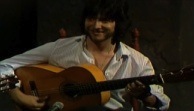
 That would be nice.
That would be nice.

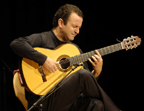


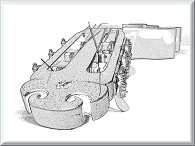
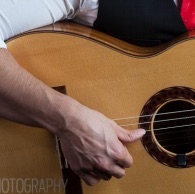
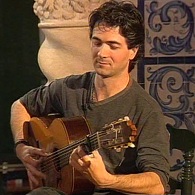

 New Messages
New Messages No New Messages
No New Messages Hot Topic w/ New Messages
Hot Topic w/ New Messages Hot Topic w/o New Messages
Hot Topic w/o New Messages Locked w/ New Messages
Locked w/ New Messages Locked w/o New Messages
Locked w/o New Messages Post New Thread
Post New Thread